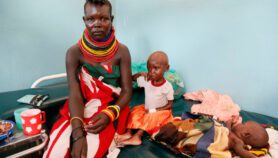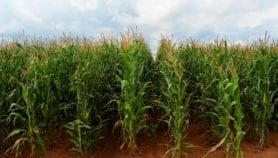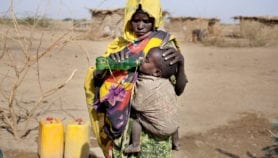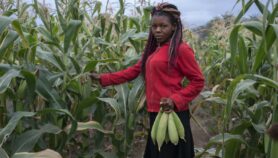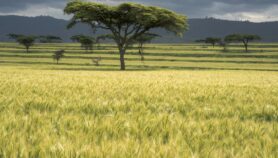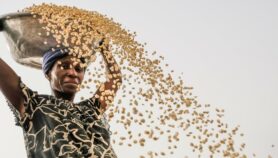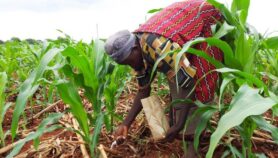15/05/20
Why food systems should be strengthened during COVID-19
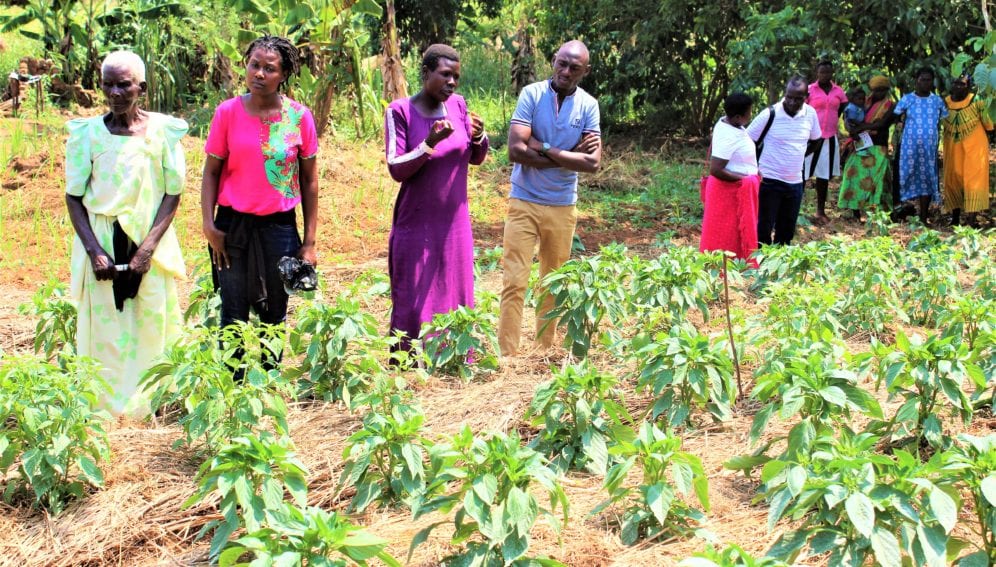
By: Gilbert Nakweya
Send to a friend
The details you provide on this page will not be used to send unsolicited email, and will not be sold to a 3rd party. See privacy policy.
[NAIROBI] The COVID-19 pandemic has come with numerous challenges in Sub-Saharan Africa, with the region’s fragile health systems often getting more attention.
But with food system suffering major disruptions due to COVID-19 control measures such as lockdowns and curfews, I couldn’t agree more with participants at a webinar held last week (7 May) who were concerned that the pandemic was disrupting every system we rely on.
The webinar, which was organised by the US-based Columbia University’s project called ACToday: Adapting Agriculture to Climate Today, for Tomorrow, discussed modalities of feeding people in a pandemic and at a time when climate change and its related impacts are real.
COVID-19 arrived at the worst time when many East African countries such as Ethiopia, Kenya and Somalia were grappling with flooding and infestation of desert locusts.
“The pandemic would be here for a long time. We need to ensure that we boost agricultural production and food security.”
Gilbert Nakweya
In January this year, the The Food And Agriculture Organization of the United Nations warned that the infestation of desert locusts “presents an extremely alarming and unprecedented threat to food security and livelihoods in the Horn of Africa”.
How can humanity be well fed as a pandemic disrupts life on a heating, turbulent planet? This was the main question the webinar discussed.
Ousmane Ndiaye, director of Senegal’s National Meteorology Service and an adjunct research scientist at the International Research Institute for Climate and Society, said that providing climate change information to smallholder farmers is necessary to help them.
Even during a pandemic such as COVID-19, Ndiaye says, farming is essential and farmers should be empowered to get to their farms. As many farmers depend on rain-fed agriculture, smallholders need to get information on whether it will rain, time for early preparations and timely planting of food crops.
He adds that the COVID-19 pandemic has worsened the food production systems in Senegal as farmers are unable to travel to their rural areas to farm. Usually, the country experiences one planting season of four months. After harvests, farmers travel to the urban centres to market their produce. With curfews and restricted public transport, some of them cannot travel to their rural areas and to the cities.
Walter Baethgen, senior research scientist and director of the regional research program at Columbia University’s International Research Institute for Climate and Society, says that many farmers in rural areas may be aware that use of fertilizers and superior quality seeds boosts yields. “The major fear of the farmers is a bad season like where rains fail leading to low yields,” he adds.
My take from the webinar is that farmers need access to climate information and the inputs needed to boost crop production. But it goes beyond just giving them information. They need to be helped, especially by governments, to translate climate information into something that is relatable to the actions they need to take.
And I concur with Baethgen that this will need agricultural extension officers to understand how farmers make decisions and respond to their needs.
The climate adaptation researchers urged countries to ensure systems that address the needs of farmers such as access to inputs and timely transport of food products to minimise inefficiencies including post-harvest losses and enable people access food.
This is not going to be the last pandemic of this century. It is important, therefore, to minimise inefficiencies in the agricultural value chain, ensure that farmers access superior quality seeds in time and can sell food stuff to the market.African governments should ensure that measures in place to control the virus do not interfere with the supply of staple foods such as maize during containment periods.
It is true that the pandemic has increased vulnerability of smallholder farming communities, especially in countries affected by desert locust invasions, and irregular off-season rainfall and floods. Such communities will need robust post-pandemic recovery efforts to ensure that smallholders do not suffer from food insecurity.
The pandemic could be here for a long time. We need to ensure that we boost agricultural production and food security.
This piece was produced by SciDev.Net’s Sub-Saharan Africa English desk.
References
Feeding Humanity as a Pandemic Disrupts a Heating Planet (Earth Institute, Columbia University, May 7, 2020)






